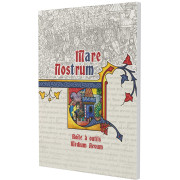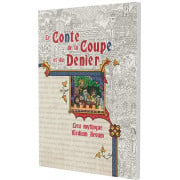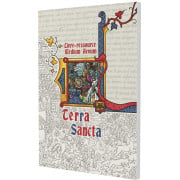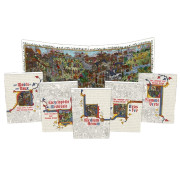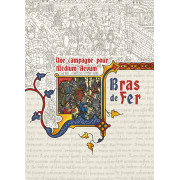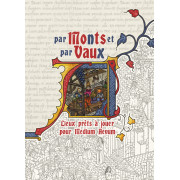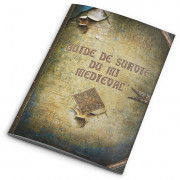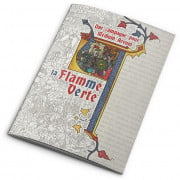Medium Aevum

Medium Aevum invites you to adventures in medieval Europe. A medieval, historical, non-fantasy West, but tinged with religious beliefs, superstitions and ancient traditions.
- Grid display
- List display
-
Red price
19,90 €
Via Dolorosa is a supplement to the Via Medium Aevum role-playing game, describing adventure locations on the routes taken by pilgrims to the Holy Land.
- French
19,90 €
Vendu par Philibert
-
Red price
19,90 €
Mare Nostrum is an incredibly rich toolbox for Medium Aevum adventures throughout the Mediterranean basin.
- French
19,90 €
Vendu par Philibert
-
Red price
Medium Aevum - Le Conte de la Coupe et du Denier
15,00 €
GM's screen for the Terra Sancta supplement to the Medium Aevum role-playing game. It is accompanied by a scenario booklet.
- French
15,00 €
Vendu par Philibert
-
Red price
Medium Aevum - Atlas de la Terra Sancta
19,90 €
L'Atlas de Terra sancta is a sourcebook for the Medium Aevum role-playing game, detailing the Latin states of the Holy Land.
- French
19,90 €
Vendu par Philibert
-
Red price
19,90 €
Terra Sancta is a sourcebook for the Medium Aevum roleplaying game that takes you to the Holy Land in the Middle East.
- French
19,90 €
Vendu par Philibert
-
Red price
99,50 €
Medium Aevum invites you to experience adventures in medieval Europe. A medieval, historical, non-fantasy West, but tinged with religious beliefs, superstitions and ancient trad...
- French
99,50 €
Vendu par Philibert
-
Red price
99,50 €
Medium Aevum is a french roleplaying game set in the medieval and historical Europe
- French
99,50 €
Vendu par Philibert
-
Red price
19,90 €
Bras de Fer is a three-act campaign set in the Scottish Highlands for Medium Aevum
- French
19,90 €
Vendu par Philibert
-
Medium Aevum - Par Monts et par Vaux
19,90 €
Par Monts et par Vaux is a sourcebook for the Medium Aevum role-playing game. It consists of seven sandbox locations to be placed according to the wanderings of the characters i...
- French
19,90 €
Vendu par Philibert
-
Red price
Le Guide de survie du MJ - Médiéval
14,90 €
The Medieval GM's Survival Guide, a generic supplement for any medieval or medieval-fantasy game with lists and charts to help game leaders deal with all situations, whether the...
- French
14,90 €
Vendu par Philibert
-
Red price
Medium Aevum - La Flamme verte
19,90 €
Campaign book for the frenc roleplaying game Medium Aevum
- French
19,90 €
Vendu par Philibert
-
Red price
19,90 €
Medium Aevum invites you to experience adventures in medieval Europe. A medieval, historical, non-fantasy West, but tinged with religious beliefs, superstitions and ancient trad...
- French
19,90 €
Vendu par Philibert
Copyright © 2026 www.philibertnet.com Legals - Privacy Policy - Cookie Preferences - Sitemap


